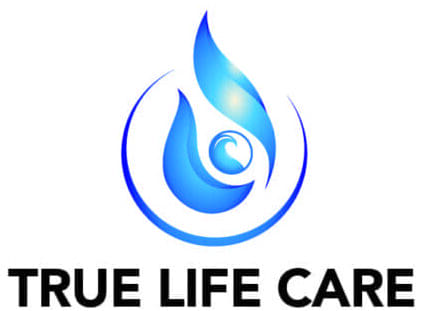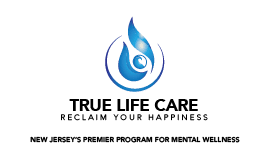How a Dual Diagnosis Treatment Program Can Help You Heal
Learn more about how our dual diagnosis treatment program in New Jersey can provide you with the help you need to heal.

Introduction
A dual diagnosis treatment program is a specialized form of addiction treatment. It addresses both addiction and co-occurring mental health disorders.
The program recognizes that these conditions often coexist and can influence each other. Hence, the need for a specialized treatment to address both.
What Does This Program Involve?
The program involves a multidisciplinary team of professionals. These professionals may include therapists and addiction specialists.
Integrated Treatment Approach
The program involves an integrated treatment approach. It is vital for those who are struggling with both an addiction and a mental health disorder. These programs focus on treating both conditions at the same time.
It helps to create a comprehensive, effective plan for long-term sobriety. The program also helps to improve mental health.
What is Dual Diagnosis?
Dual diagnosis is the co-occurrence of two disorders. These include a mental health disorder and substance use disorder.1
The person experiences symptoms related to both disorders. These symptoms can affect their well-being.
Common Dual Diagnosis Combinations
Common dual-diagnosis combinations include major depression with alcohol dependence. Individuals can get treatment for dual diagnoses at treatment facilities. One such facility is True Life Care.
Other Conditions Associated with Dual Diagnoses
Some other mental health disorders associated with dual diagnosis are:
- Eating disorders
- Attention-deficit/hyperactivity disorder (ADHD)
- Post-traumatic stress disorder (PTSD)
- Schizophrenia
Dual diagnoses can present unique challenges for diagnosis and treatment. The symptoms of both mental health and substance use disorders can interact. It makes it essential to address both conditions.
Difference Between Traditional Addiction Treatment and a Dual Diagnosis Treatment Program
Traditional addiction treatment and a dual diagnosis treatment program differ. They address mental health and substance use disorders in different ways.
Below are some of these differences.
Recovery Support
Traditional addiction treatment focuses on achieving and maintaining sobriety from substances.
A dual diagnosis treatment program doesn’t focus only on sobriety. It also emphasizes the management and improvement of mental health symptoms.
A dual diagnosis treatment program aims for mental wellness and stability.
Focus
Traditional addiction treatment addresses substance use disorders and other related behaviors.
Dual diagnosis treatment focuses on treating substance use and mental health disorders.
Comprehensive Assessment
Traditional addiction treatment may not diagnose underlying mental health conditions. This lack of diagnosis may lead to gaps in treatment.
A dual diagnosis treatment program conducts thorough assessments. It helps to diagnose co-occurring mental health disorders alongside substance use disorders.
This allows for a more accurate and personalized treatment plan.
Treatment Integration
Traditional addiction treatment separates mental health and addiction treatment. It often treats them as distinct issues that may need different interventions.
A dual diagnosis treatment program integrates mental health and addiction treatment. It recognizes that both conditions interact and influence each other.
Why This Approach is Important
This approach emphasizes the need for a comprehensive treatment plan. It is vital for the plan to address both disorders.
Treatment Modalities
Traditional addiction treatment often includes detoxification and counseling. It may also include support groups and behavioral therapies tailored to addiction.
A dual diagnosis treatment program uses a wider range of treatment modalities.
What It May Include
It may also include:
- Medication management
- Psychotherapy
- Cognitive-behavioral therapy
- Other evidence-based practices
Key Components and Approaches Used in a Dual Diagnosis Treatment Program
A dual-diagnosis treatment program incorporates key components and approaches. These components help address both substance use and co-occurring mental health disorders.
Most of the components are available at mental health facilities such as True Life Care.
Below are some of these key approaches.
Holistic Approaches
To support well-being, a dual diagnosis treatment program often incorporates holistic approaches. This may include:
- Exercise
- Nutrition
- Mindfulness
- Art therapy
- Other complementary therapies
Goal of Holistic Approaches
These approaches aim to enhance physical, emotional, and spiritual health.
Aftercare and Ongoing Support
A successful dual diagnosis treatment program recognizes the importance of continued support. The support is vital after completing the initial treatment phase.
Examples of Aftercare Plans
Aftercare plans may include:
- Ongoing therapy
- Support groups
- Relapse prevention strategies
- Connections to community resources
Dual-Focus Support Groups
Participation in support groups designed for individuals with a dual diagnosis is beneficial. These groups offer a safe space and environment.
Here, people can connect with others facing similar challenges. and share experiences. It helps them gain support in their recovery journey.
Psychotherapy and Counseling
Various therapeutic approaches help to address both addiction and mental health issues.2
Below are some common evidence-based therapies.
Cognitive-Behavioral Therapy (CBT)
CBT helps people identify and change negative thought patterns. It also helps to change behaviors related to addiction and mental health disorders.
Dialectical Behavior Therapy (DBT)
DBT focuses on developing skills for emotion regulation. It helps to develop:
- Interpersonal effectiveness
- Distress tolerance
- Mindfulness
It also helps manage intense emotions and behaviors.
Motivational Interviewing (MI)
MI is a client-centered approach. It explores and enhances motivation to change addictive behaviors and addresses ambivalence.
Trauma-Focused Therapies
Many individuals with co-occurring disorders have experienced traumatic events.
This therapy targets trauma-related symptoms. It helps people process and heal from traumatic experiences.
Group Therapy
Group therapy provides a supportive environment for people to share experiences. Here, they can learn from others and develop healthy coping strategies.
Group therapy can address both addiction and mental health topics.
Mindfulness
Mindfulness-based cognitive therapy (MBCT) incorporates meditation and mindfulness practices. It helps to:
- Cultivate present-moment awareness
- Reduce stress
- Improve emotional well-being
How Common Are Co-Occurring Disorders?
Co-occurring disorders, also known as dual diagnosis, are common. There is a high prevalence of co-occurring mental health and substance use disorders.
Co-Occurring Disorders in Young Adults
Co-Occurring Disorders in Adults
The next statistic is from the National Center for Drug Abuse Statistics. In 2018, 3.2 million adults in the U.S. had co-occurring substance use disorder in the past year.4
Importance of Addressing Both Addiction and Mental Health Conditions
Addressing both conditions in dual diagnosis treatment programs is crucial for many reasons.
Identifying Underlying Causes
Many people turn to substances to cope with underlying mental health issues such as:
- Depression
- Anxiety
- Trauma
- Other disorders
By treating both conditions, doctors can address the root causes of substance use. They can then work toward long-term recovery.
Relapse Prevention
Treating one aspect of dual diagnosis may leave a person vulnerable to relapse. By addressing addiction and mental health conditions, treatment programs can equip individuals with:
- Effective coping strategies
- Relapse prevention technique
- Enhanced resilience to manage triggers and stressors that may contribute to relapse
Improved Treatment Outcomes
Treating addiction and mental health conditions has improved treatment outcomes. Integrated treatment approaches get associated with:
- Reduced substance use
- Improved mental health symptoms
- Decreased hospitalizations
- Enhanced functioning and quality of life
Benefits and Outcomes Associated with a Dual Diagnosis Treatment Program
A dual diagnosis treatment program offers many benefits and outcomes. These can help individuals struggling with both mental health and substance use disorders.
People who take part in a dual diagnosis treatment program can:
- Find relief from the effects of their symptoms
- Manage their cravings
- Learn new coping skills
Below are some of the benefits of these programs.
Enhanced Functioning and Quality of Life
A dual diagnosis treatment program aims to improve functioning and quality of life.
By addressing both addiction and mental health disorders, people experience improved interpersonal relationships. This leads to improvement in their daily lives.
Improved Diagnosis and Treatment Accuracy
A dual diagnosis treatment program involves thorough assessments and diagnostic procedures. These assessments identify co-occurring mental health disorders.
It’s important to address the underlying mental health conditions alongside addiction. In doing so, doctors develop tailored treatment plans that address each person’s needs.
Enhanced Recovery Rates
Studies show that people in dual diagnosis treatment have higher rates of recovery. This is in comparison to those getting treatment for only one condition.
Treating addiction and mental health disorders can:
- Target the underlying causes
- Reduce relapse rates
- Improve long-term outcomes
Improved Mental Health Outcomes
A dual diagnosis treatment program helps with improved mental health outcomes. This includes reductions in symptoms of:
- Depression
- Anxiety
- Other mental health disorders
Treating the mental health condition alongside addiction can lead to better mental well-being. It can also lead to increased emotional stability
Guidelines to Determine Suitability for a Dual Diagnosis Treatment Program
Determining if a person is suitable for a dual diagnosis treatment program is vital. It requires a comprehensive assessment to know their needs. It’s also necessary to determine the appropriate level of care.
Below are some of the guidelines to consider.
Assessment
Conduct a thorough assessment to understand the person’s history and symptoms. Study the patterns of both addiction and mental health disorders
What Assessments Should Include
This assessment should include:
- Interviews
- Standardized assessment tools
- Medical history
- Psychiatric evaluation
- Available collateral information from family members
Co-Occurrence of Disorders
Determine if the person has co-occurring substance use and mental health disorders. Look for evidence of symptoms and functional impairment related to both conditions.
Ensure that both the addiction and the mental health disorder need treatment.
Treatment History
Review the individual’s treatment history. The history will include previous attempts at addressing addiction and mental health concerns.
Assess whether previous treatment efforts integrated well and targeted both conditions. Also, check if there were gaps in the treatment approach.
Complexity and Severity
Consider the complexity and severity of the co-occurring disorders. These programs are good for certain people. It’s best for those with moderate to severe addiction and mental health disorders.
Check to see if the person needs a specialized program. This program would address both conditions.
Medical Considerations
Consider any medical considerations that may affect treatment. Some of these may include physical health conditions and medication interactions.
There may also be a need for specialized medical care in conjunction with treatment.
Interference and Impact
Assess the impact of both the addiction and mental health disorder on the person’s:
- Daily functioning
- Relationships
- Quality of life
Determine if the co-occurring disorders interfere with their ability to function. Decide if they need simultaneous treatment for optimal recovery.
How True Life Care Can Help Individuals Struggling with Co-Occurring Disorders
At True Life Care, many treatments and programs are available. The goal is to enable smooth and long-term recovery.
Below are some of the ways True Life Care can help.
Individualized Treatment Planning
True Life Care offers treatment plans. These plans depend on each person’s specific needs and goals.
There are treatment providers that will tailor the interventions. This helps to address the unique combination of addiction and mental health disorders.
Individualized treatment planning increases the likelihood of successful outcomes.
Long-Term Recovery Support
True Life Care is a medical facility with recovery tools. The facility serves as a support system to maintain long-term recovery. Here, patients can manage their mental health.
There are also therapies available at the facility. These therapies will equip individuals with the knowledge to navigate challenges.
The facility helps the individual cope with stress. It also helps them sustain their progress beyond the treatment program.
Concurrent Treatment Progress
At True Life Care, patients will have progressive addiction recovery. These people will also have stable mental health.
This parallel progress can result in better treatment outcomes. It occurs because improvements in one area can impact the other. This leads to a more balanced and integrated recovery process.
Medication Management Evaluations
True Life Care can provide in-house medication management evaluations. Medication-assisted treatment (MAT) can help people with co-occurring disorders. This may involve prescribing and monitoring medications for mental health conditions.
Medications Used in Medication Management
Some of these medications include:
- Antidepressants
- Mood stabilizers
- Antipsychotics
Medication management is essential in achieving symptom stability and supporting the recovery process.

Receive Your Dual Diagnosis Treatment at True Life Care
The dual diagnosis treatment program at True Life Care involves various treatment programs.
Our Facilities
Here, the medical facility provides the individual with support and care. The facility aids in a smooth recovery.
The mental health facility offers holistic approaches and aftercare programs. These programs aid the individual’s smooth transition to life after treatment.
Dual Diagnosis Treatment at True Life Care
A dual diagnosis treatment program is a specialized approach. It helps individuals experiencing substance use disorder.
You can receive a comprehensive dual diagnosis treatment at True Life Care. True Life Care has individualized treatment plans to cater to your specific needs.
Aftercare Support
True Life Care also offers an aftercare and ongoing support program. We aim to address the person’s ongoing needs.
Here, the individual will take part in support groups and continued therapy.
Contact True Life Care Today
Managing a dual diagnosis can be challenging. But, it’s not impossible. Reach out to True Life Care today about our dual diagnosis treatment program in New Jersey.
Resources
- https://www.ncbi.nlm.nih.gov/pmc/articles/PMC9339962/
- https://www.dartmouth.edu/eap/library/dualdiagnosis1.pdf\
- https://www.hhs.gov/about/news/2023/01/04/samhsa-announces-national-survey-drug-use-health-results-detailing-mental-illness-substance-use-levels-2021.html
- https://drugabusestatistics.org/



